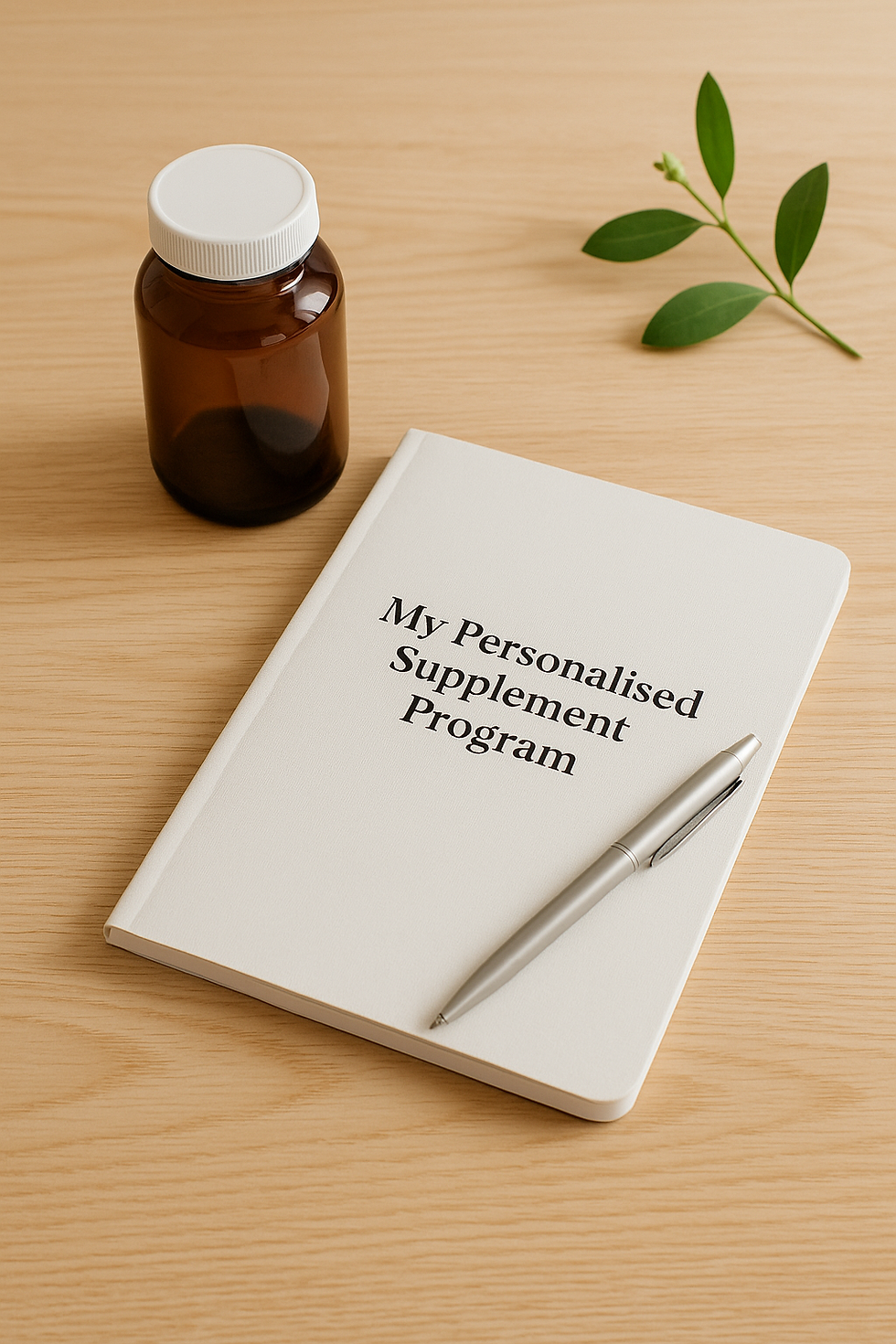But I Eat Well—So Why Do I Still Need Supplements?
- Alison Singleton
- Sep 17, 2025
- 3 min read

“If I eat a good diet, why do I need to take supplements?” Shouldn’t I be getting everything I need from food?” Am I going to be on these forever?”
These are questions I hear from long-time clients—people who genuinely take care of themselves. They’re eating well, prioritising whole foods, cutting back on sugar, doing so much right. And yet... something still feels off.
That’s when the question comes: “Do I really need to keep taking these supplements?” And it’s a fair question.
Here’s what I’ve seen in my office over the years—and why personalised supplementation still matters.
✅ Quick Summary
Even great food can fall short—NZ soils are low in key minerals
Absorption matters as much as intake
Life stages and stress increase your nutritional needs
RDIs are the bare minimum to prevent disease—not the optimal target to feel fantastic
1. Good Food, Low Minerals
You might be eating well—but what about the soil your food is grown in?
NZ and Aussie soils are naturally low in selenium, zinc, and chromium—trace minerals that support your thyroid, immune system, hormones, and more.
Research shows most NZ soils have relatively low selenium levels compared to many other countries, and some areas (especially in the South Island) show lower selenium in people’s blood levels.(Source)
Even the best vegetables can only give what the soil holds. So if that’s depleted? Your body might be too.
It’s one of the biggest reasons we supplement: to top up the tank when food alone isn’t enough.

2. What You Eat Isn’t Always What You Absorb
Your body’s ability to absorb nutrients can change over time.
Past gut issues, stress, low stomach acid, inflammation, hormonal shifts… all of these can reduce how well your body extracts what it needs from food.
So even if your meals are loaded with goodness—your cells might still be missing key support.
3. Sometimes You Just Need More
The RDIs (Recommended Daily Intakes) are designed to prevent deficiency—not to help you feel energised, resilient, or hormonally balanced.
A perimenopausal person has different needs than they did at 25
Someone healing from burnout or long‑term stress has higher nutritional needs
Sometimes increasing support temporarily makes all the difference
I’ve seen clients on maintenance plans reduce their supplement support, only to notice energy dips, mood shifts, lower sleep quality. They restart the supplement and feel more like themselves again.
Think of it like building a house. If you don’t have enough bricks (nutrients), it doesn’t matter how pretty the curtains are. You need structure first.

4. Why Do I Need Supplements If I Eat Well?
Sometimes, yes. But that doesn’t mean it’s a bad thing.
Some nutrients become part of your ongoing maintenance support—just like brushing your teeth or drinking water.
Some clients decide to pause a supplement just to see how they feel. A few weeks later, they come back saying:
“I’m not sleeping as well.” My energy’s dropped a bit.”
It’s often subtle. Like your battery slowly draining from 100% to 60%.
So What’s the Goal, Really?
It’s not about being on a whole shelf of pills.
It’s about using good quality, targeted, and personalised support—based on where your body’s at right now, and what it needs to thrive.
Life shifts. Hormones shift. Seasons shift. Nutrient needs change with them.
Imagine having the nutrients on board to keep your energy steady, your moods balanced, and your health stronger through whatever life throws your way.
That’s why we support the body well—not just when things go wrong, but to help keep things going right.
If You’ve Ever Thought…
“I feel off—even though everything else looks good.”
You’re not necessarily doing anything wrong. Your body might just be saying: “I need a bit more help here.”
If you’ve been wondering why you still feel flat or fatigued—even when your diet looks good—this might be the missing piece.

➡️ Message me or comment below and I can help you figure out what support may be missing.



































Comments